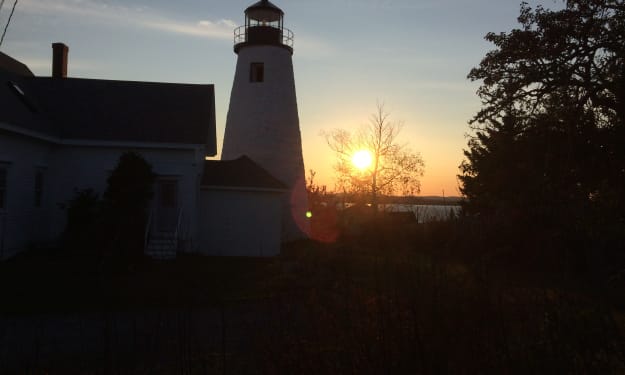Why Creatives Shouldn’t Be Afraid of AI
There are no limits to creativity, so there is room enough for us all

AI, like any powerful technology, will have both positive and negative effects on society. But what’s particularly scary about this technology is that its development is moving incredibly fast, and it represents a way for technology to replicate and replace human functions like nothing before it. These ills are compounded by the unethical business structures surrounding AI. AI’s owners are relatively few, whereas the information that went to feed these machines was cultivated by all of us. They’re taking the works of individuals, giving it to the machine to study, and then having the machine recreate fundamentally derivative works without ever compensating the original creator. If they’re making a deal with a company like Shutterstock, YouTube, or even a platform like the one you’re reading this on, to be able to use their data, the shareholders of both the content company and AI company will see a financial windfall from it, but the content creators who actually supply that data are so far being left out. The same thing is likely to happen when companies use this technology to boost productivity. They will need less workers, and the people who will primarily benefit from this are those at the top. It should be clear by now that this article is not in defense of AI, nor is it a message of optimism about how AI will impact society. Instead, the aim here is to assist the creative in working through their reasonable fear that their contributions to the world are soon to be replaced and devalued from oversupply. We will find, however, that there is nothing to fear.
It is a tough truth to swallow, but I don’t believe human intelligence or creativity is so special or powerful that AI can’t completely replace it. In time, it is likely that these unfeeling machines will be able to generate works that are entirely indissociable from anything a person can make. Yet, there are still many reasons to not lose hope, and chief among them is that if you hadn’t lost hope prior to AI, you have no reason to do so now. Every artist in the world was already competing against an incomprehensibly crowded field. There are more great books in the world than any one person could read in 10 lifetimes, and knowing that was the case I, and many others, still put forward tremendous effort to throw another, of our own creation, onto the pile. When someone tries to become a professional artist, they’re often derided for it, so impossibly difficult are the odds of even being able to eke out a living in this field. This is the case now; it was the case 50 years ago. Humans pursue the arts because it speaks to what it means to be human, and it has always been a foolhardy undertaking to try to do so professionally. Perhaps AI can add to that difficulty, but when one brave individual has already taken on the challenge of battling 1,000 others by themselves, how silly is it for them to lose heart at the addition of another 100?
The other reason we shouldn’t feel dissuaded here is that, yes, AI may eventually be able to do all that we can, but just because it can doesn’t mean it will. Art was never about a ranking of abilities; it has always been about a spectrum of equally valuable flavors. Maybe the AI can become as good as Dostoevsky was, but it still would never have written The Brothers Karamazov. If we brought Dostoevsky himself back to life, and created 100 exact clones of him, and let them live their lives, none of them would create The Brothers Karamazov either. The work is not just a reflection of the creator and their ability; it’s a reflection of the lived experience of the creator as well. It’s also a direct consequence of whatever happened to inspire them on one random day. Intellect is a thing that processes information. The intellect itself can be replicated, but the universe is illimitable, and in whatever time or place we stand, we take in a different part of it. What the mind produces thereafter is just as much owing to our specific experiences as it is to the specifics of our personhood.
AI will never be able to create everything. It cannot write every great book that can be written, it cannot make every great image that can be made, and it cannot compose every great song that can be composed. Here, it leaves off competing with us paltry mortals and enters into competition with God, whereby it is woefully outmatched. No human technology will ever be able to explore the full realm of possibility that this universe holds. There will always be more to create. So long as humans can still construct brilliant pieces of art, they shall remain relevant. The AI can be every bit as good as our best, and maybe even better, but there is no AI that can make the works of Emerson, da Vinci, or Beethoven any less beautiful. Maybe the day comes where it’s a coin toss, and I might enjoy the new novel by ChatGPT 700 just as much as I did a work by Alexandre Dumas, but even when the machine has reached this stunning degree of aptitude in the field, the work of Dumas won’t have lost a quantum of its appeal. The next day I should just as well treat myself to his work over the machine’s.
Every consumer of art was already greeted with a feast that exceeds the limits of their appetite. This never made a work of genius any less important. Perhaps those who, in lieu of reading my writing, choose to read the work of one of the millions of other authors available will instead read something created by an automaton, and what difference does it make to me? Excellent creatives will starve as the works of the machine soak up all the attention? You know what class of cold, lifeless, unfeeling rival authors have already been competing against for attention since the beginning of time? The dead. I can hardly advocate for you reading my work instead of Aristotle’s, even though I need the money much more than he does. Is this seen as a crime against the living or an insurmountable obstacle? We write on.
Art is infinite. Let them set their machines to working for the next hundred years, and call on me the next day, and I guarantee you I would be able to create something that none of them did all that time. Art is cumulative and recursive. Schopenhauer decried Hegel, and Nietzsche decried Schopenhauer, and so on. They refute each other, and build on each other, and if one makes something new, then to criticize that something new is the creation of yet another new itself. Just as time passes and each second gives birth to another, or as space is traversed and every expanse put behind us reveals a new one before us, the unfolding of existence and of the creative potential underlying it is without end. Don’t fret, young creative, the machines are more powerful than you, and you’re no match for their soulless efficiency, but the well we all drink from is bottomless, and you will always be able to draw something forth that the world needs and will never get by another hand than yours.
As a final note, let me say that this entire discussion has forgotten the true arena and purpose of creative life. Forget the companies, and the computers, and the marketplace — art is an expression of the soul. That is all it is. It is not something that requires validation from the outside world. It’s an end unto itself. It’s great to be able to use it to put food on the table. If you’re bringing value into people’s lives with your creations, you deserve to be compensated for it. But I do not get my true reward for the work I do when I see the number in my bank account take a modest jump each month. I was rewarded as I worked through a problem that was bothering me with the help of pen and pad. I am rewarded with the feeling that my being bears fruits, and that I was birthed by this universe and now work as a part of it to engender a little more of its magic. I am rewarded by the thought that if any of my fellow humans happen to stumble upon this writing that they will see themselves in it, and we will have a connection and know each other beyond any extent of time or space. I am rewarded the moment I begin the work.
Lock me in a room on an island a thousand miles from anyone, take from me all of my possessions and any prospects of garnering new ones, mount me against a field of competitors who are in every way my superiors, and you still will not have robbed me of the joy of creating. In this, so long as we live, we are invincible.
About the Creator
Martin Vidal
Author of A Guide for Ambitious People, Flower Garden, and On Authorship
martinvidal.co
martinvidal.medium.com
Instagram: @martinvidalofficial






Comments
There are no comments for this story
Be the first to respond and start the conversation.